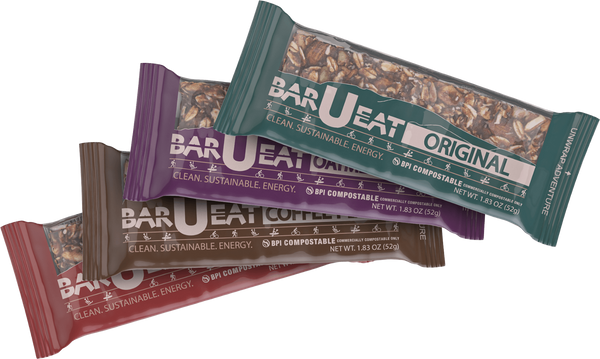
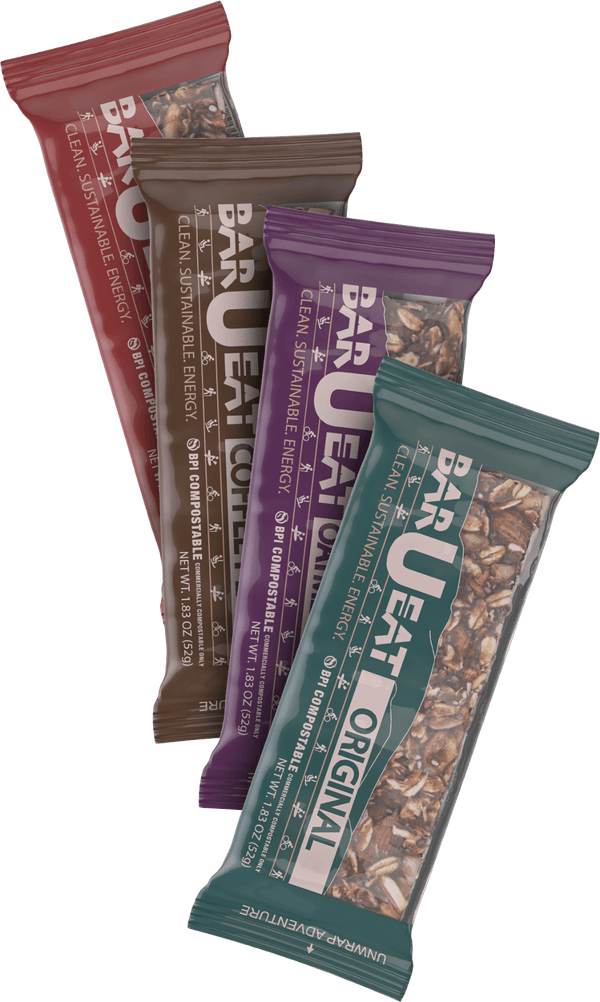
FEED YOUR DIRT
YES! Our packaging is plant-based and 100% compostable. NO! That does not mean you can throw it on the ground and it'll decompose and disappear. Learning about composting and where to go for resources is easy with a bit of help, and that's what we're here for.
How to Compost Our Packaging
ALL of our wrappers are BPI Certified Commercially Compostable. If your neighborhood, or the region you live in, has a public or private composting program or facility, you can send our packaging to them and they’ll have it turned into nutrient-rich compost in no time!
Find a Composting Facility Near You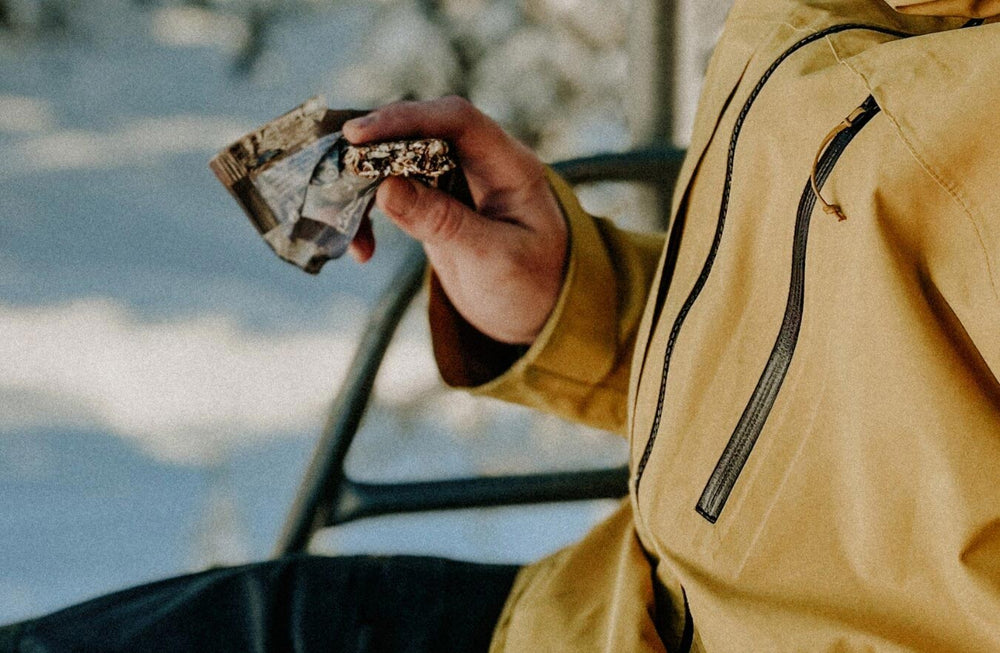
In pursuit of the most sustainable & eco-friendly materials
BAR-U-EAT is constantly reevaluating our packaging and will seek out new sustainable materials as they become available.
Read More About Our Sustainability GoalsHow do I compost?
Composting is all about heat and aeration to promote the growth of fungi and bacteria to effectively break down waste. You need a delicate balance of heat and air in a compost pile. Otherwise, it will take a longer time to break down and it may lose its nutritional benefits. Home composting methods can include a worm bin, a compost turner, a compost pile, or a tabletop, residential composter (Lomi)
Can’t I compost your packaging at my home?
At present, there is no 3rd party certification in the U.S. for home composting. How we dispose of different types of waste varies significantly to a point that it makes it difficult to systemize a home composting method that will work for every household. Learning how to properly compost at home is a great goal, but for now, commercial composting is our go-to!
Why industrial composting?
Commercial composting facilities are able to consistently maintain the proper conditions required to reliably break down compostable packaging and turn it into usable compost. If you’d like to try composting our packaging yourself, keep in mind that you may not be able to generate consistent conditions to properly turn it into compost.
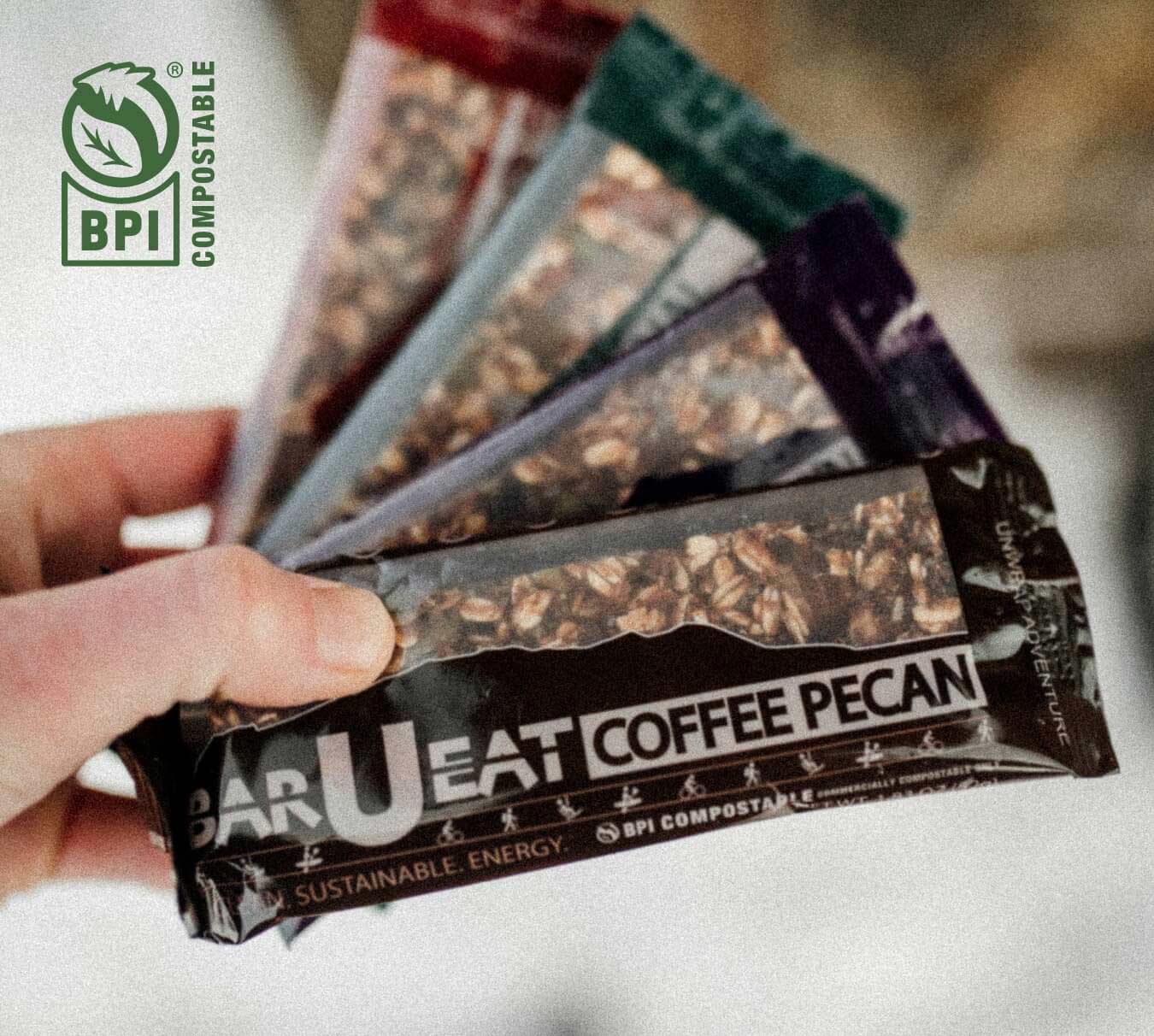
About Our Packaging
When compared to plastic wrappers that remain in landfills for decades, our plant-based compostable packaging will break down when industrially composted to help reduce our impact on the planet.
All of our packaging material is made from wood cellulose (wood pulp) from PEFC Certified sustainably managed forests in the Pacific Northwest, and bioplastic partially made from corn. It is also substantiated ASTM D6400 Industrial Compostable. The ink is both home and industrial compostable, Certified to the EU standard EN 13432.
The entirety of our individual bar wrappers (film, adhesive, and ink) are BPI Certified Compostable making us the first bar in the world to carry this certification. We don’t take that for granted! This certification makes it easier for end-of-life composters to handle and ensures that it will create healthy, usable compost for truly regenerative packaging.
Compostable vs Biodegradeable
The main difference between these two types of materials is that when compostable materials are composted properly, they are turned into nutrient-rich compost for the earth, whereas biodegradable materials simply break down into innocuous elements naturally.
It’s important to point out that compostable materials are biodegradable, but biodegradable materials are not compostable.
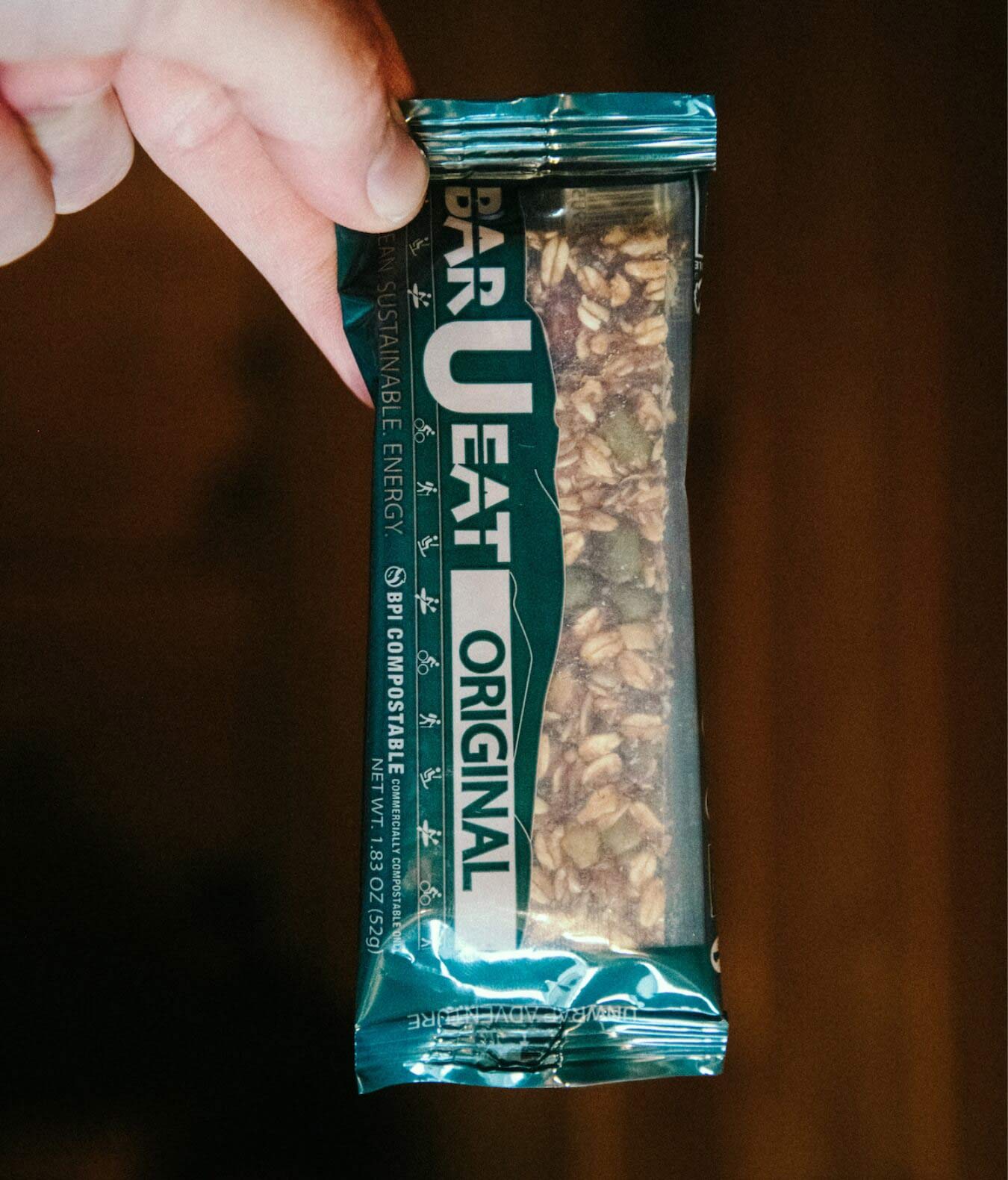
What Happens if I Put My Wrapper in the Trash?
We have to ask you not to throw our wrappers in your trash!
We get that you’re still going to produce waste because that’s just the society we live in. We don’t want to guilt anyone, only encourage folks to be better where they can. If you can find ways to reduce the amount of waste you create though, like consuming BAR-U-EAT and locating a commercial compost facility near you, it’s possible!
We ask that you don’t throw BAR-U-EAT wrappers in the trash because, in a landfill environment, there is no oxygen to convert innocuous elements into usable compost. That means materials in these environments have the ability to biodegrade, but won’t turn into compost. If your wrapper makes it to a marine environment, the material still cannot become compost. It requires terrestrial life like fungi and certain bacterium to decompose it, which are not present in the ocean.
So please, whenever possible, take the steps to make sure your packaging is composted correctly to give back to our beautiful, natural world!
Always remember: leave no trace and find the proper place to dispose of waste. Always think sustainably.
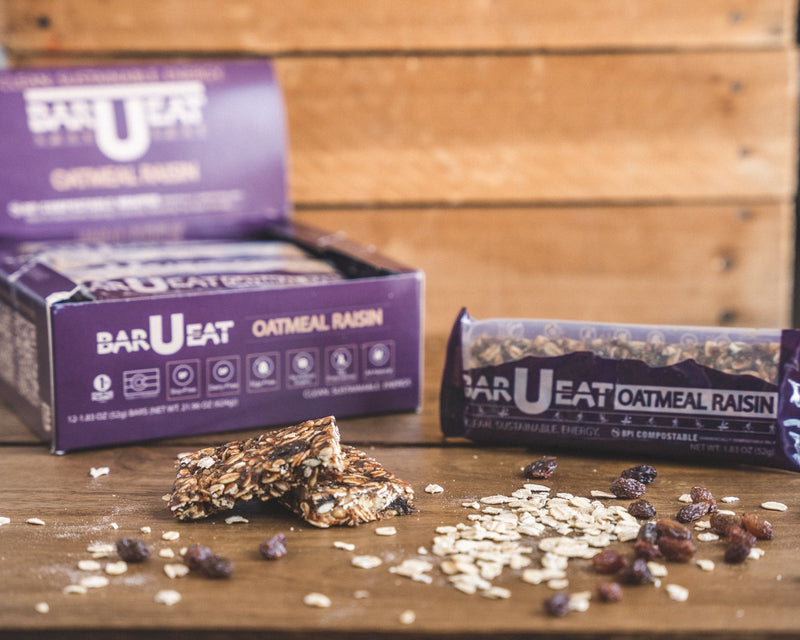

BAR-U-EAT IS ON A MISSION
We think the food industry can do better with their packaging. We've set out to use the most sustainable wrappers we could get our hands on to show everyone what's possible.